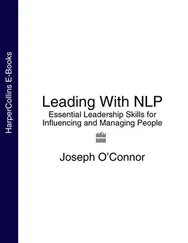John Gray - Children Are from Heaven - Positive Parenting Skills for Raising Cooperative, Confident, and Compassionate Children
Здесь есть возможность читать онлайн «John Gray - Children Are from Heaven - Positive Parenting Skills for Raising Cooperative, Confident, and Compassionate Children» весь текст электронной книги совершенно бесплатно (целиком полную версию без сокращений). В некоторых случаях можно слушать аудио, скачать через торрент в формате fb2 и присутствует краткое содержание. Год выпуска: 1999, ISBN: 1999, Издательство: HarperCollins e-books, Жанр: psy_childs, sci_pedagogy, Психология, на английском языке. Описание произведения, (предисловие) а так же отзывы посетителей доступны на портале библиотеки ЛибКат.
- Название:Children Are from Heaven: Positive Parenting Skills for Raising Cooperative, Confident, and Compassionate Children
- Автор:
- Издательство:HarperCollins e-books
- Жанр:
- Год:1999
- ISBN:978-0-06-133886-1
- Рейтинг книги:4 / 5. Голосов: 1
-
Избранное:Добавить в избранное
- Отзывы:
-
Ваша оценка:
- 80
- 1
- 2
- 3
- 4
- 5
Children Are from Heaven: Positive Parenting Skills for Raising Cooperative, Confident, and Compassionate Children: краткое содержание, описание и аннотация
Предлагаем к чтению аннотацию, описание, краткое содержание или предисловие (зависит от того, что написал сам автор книги «Children Are from Heaven: Positive Parenting Skills for Raising Cooperative, Confident, and Compassionate Children»). Если вы не нашли необходимую информацию о книге — напишите в комментариях, мы постараемся отыскать её.
Children Are from Heaven: Positive Parenting Skills for Raising Cooperative, Confident, and Compassionate Children — читать онлайн бесплатно полную книгу (весь текст) целиком
Ниже представлен текст книги, разбитый по страницам. Система сохранения места последней прочитанной страницы, позволяет с удобством читать онлайн бесплатно книгу «Children Are from Heaven: Positive Parenting Skills for Raising Cooperative, Confident, and Compassionate Children», без необходимости каждый раз заново искать на чём Вы остановились. Поставьте закладку, и сможете в любой момент перейти на страницу, на которой закончили чтение.
Интервал:
Закладка:
Before commanding take into consideration your child’s temperament.
Sensitive children also require greater assistance. Rather than expecting a sensitive child to clean his room, ask him to join in to help you. In this way, by doing things together they will slowly become more independent. After commanding them to help clean their room just join in and start cleaning.
Responsive children may feel cleaning the whole room is too much and then feel the need to move on to something else which is easier and less time consuming. Parents need to give these children an opportunity to move from one thing to another. Remember they are like butterflies and need to keep moving around.
Before commanding a responsive child, parents must first attempt redirecting a child. When they are unwilling to clean their room, try directing them just to clean up one thing and then go on from there. Sometimes it is enough if they do a few things, and you do more. Eventually, they will want to do more, but it takes time.
Receptive children generally don’t require commanding.
They tend to be more accommodating. If they resist, it is often because the parent expects them to make a change before they are sufficiently prepared. Once they receive the reassurance and preparation they need, they will be more willing to accommodate.
Rather than commanding receptive children, parents need to be more understanding of the child’s need for rhythm and repetition. These children don’t respond well to sudden changes, interruptions, or demands.
Active children respond best to commanding in private.
Take them to the side or into another room to command their cooperation. They pride themselves on doing the right thing, on being in control, and may become unnecessarily defensive or resistant in front of others.
8
New Skills for Maintaining
Control
When a child defies or rejects parental control, instead of recognizing this behavior as bad or wrong, positive parenting simply acknowledges that the defiant child is out of control — out of his parents’ control. Instead of judging, punishing, or lecturing the child, all that is required is to bring the child back into control. When children are out of control, a parent is required to contain or restrain them from continuing to defy or reject the parents’ control.
The purpose of a time out is not to threaten or punish a child in any way. It is simply a way to help children experience that they are once again in their parents’ control and that they prefer it that way. Children need to push up against limits in order to find acceptance and begin to cooperate again.
God made children little so that when they
go out of control we can pick them up and
put them in a time out.
When children misbehave, they have often just forgotten that their parents are the boss and that they actually want it that way. When children are out of their parents’ control, they have disconnected from their natural ability and willingness to cooperate. When children are not getting what they need to feel their desire to cooperate, they eventually become disconnected from their parents and go out of control. Children need guidance. When they stop feeling their need to be guided, they spin out of control.
Inviting cooperation, listening to and nurturing a child’s needs, and giving rewards keeps a child connected to his or her willingness to cooperate. When stress increases for the child or the parent, this inner connection is temporarily broken. Like a car out of control, the child will inevitably crash.
Under stress children go out of control, like a
speeding car without a driver.
When parents lose touch with their willingness to cooperate and begin demanding obedience, children automatically follow suit and lose touch with their willingness to cooperate. A stressed parent feeling out of control can easily push a child out of control as well. Conversely, a stressed child feeling out of control can easily push a parent out of control, unless that parent clearly knows how to regain and maintain control.
THE NEED FOR TIME OUT
With these new tools for creating cooperation, parents can maintain control within themselves, which in turns helps children stay in their control. Inevitably, some kids will go out of control on a regular basis, and the positive parent is prepared to deal with it. Almost all children need to take time outs on a regular basis to learn how to regain control when emotions become too strong to control.
Time outs are needed to regain control when
emotions become too strong.
Even many mature adults don’t know how to handle their inner emotions at stressful times. We cannot expect children to do so. By teaching thousands of adults to manage their inner feelings, I discovered many of these skills for creating cooperation. When a parent is stuck feeling resentful, anxious, depressed, indifferent, judgmental, confused, or guilty, the answer is always to look within to manage the negative emotions.
One of the major reasons there is so much more domestic violence in the West today is the lack of emotional control. In a free society, it is inevitable that feelings become richer when supported and more volatile when not supported. The first skill for resolving conflict in a relationship and ending all violence is recognizing that when feelings become strong, defiant, or rejecting, it is time to take a time out and cool off.
In a free society, it is inevitable that feelings
become richer when supported and more
volatile when not supported.
Adults who lose control and act out violently do so primarily because they never learned to take a time out to feel and release their negative emotions. This basic ability is needed by children, teens, and adults as well. The difference between a child and an adult is that a wise adult should know when she needs to take a time out and a child doesn’t.
Children at nine or ten years old, who have been raised with time outs, will automatically begin taking time outs on their own whenever they become stressed, negative, or argumentative. It is not a difficult skill, but it takes practice.
Sometimes the reason a time out works is that it puts the parent back into feeling in control. When a parent begins to feel out of control, it pushes a child out of control. By giving a time out, the parent has a chance to cool off and once again feel in control. This in itself is often what the child needs. A frustrated, demanding parent can easily spin a child out of control. The option of giving a time out not only puts the child in control but helps the parent as well.
A frustrated, demanding parent can easily
spin a child out of control.
When a child is not willing to cooperate with a command, then it is time for a time out. At this point, a time out is an opportunity for the child to blow off steam and throw a tantrum. Children need to feel their resistance to life’s inevitable limits and boundaries. They need to push up against those limits and feel their resistance. This pushing or resistance helps a child develop a strong sense of self. Ultimately, all the positive characteristics of the true self emerge. First, the negative emotions under the resistance must be felt and released.
Time to push against the limits is needed to help children experience the different layers of feelings underneath their resistance, resentment, rejection, or rebellion. Resistance is released when we are able to feel and release the three underlying negative emotions of anger, sadness, and fear. In a similar manner, adults can release the negative blocks of resentment, guilt, self-pity, when they take a time out to explore, feel, and release their negative emotions.
Читать дальшеИнтервал:
Закладка:
Похожие книги на «Children Are from Heaven: Positive Parenting Skills for Raising Cooperative, Confident, and Compassionate Children»
Представляем Вашему вниманию похожие книги на «Children Are from Heaven: Positive Parenting Skills for Raising Cooperative, Confident, and Compassionate Children» списком для выбора. Мы отобрали схожую по названию и смыслу литературу в надежде предоставить читателям больше вариантов отыскать новые, интересные, ещё непрочитанные произведения.
Обсуждение, отзывы о книге «Children Are from Heaven: Positive Parenting Skills for Raising Cooperative, Confident, and Compassionate Children» и просто собственные мнения читателей. Оставьте ваши комментарии, напишите, что Вы думаете о произведении, его смысле или главных героях. Укажите что конкретно понравилось, а что нет, и почему Вы так считаете.












